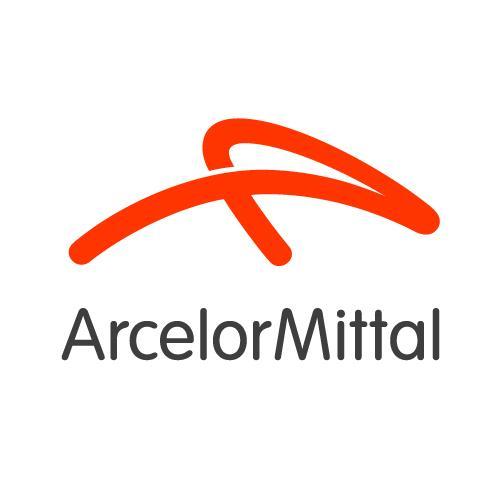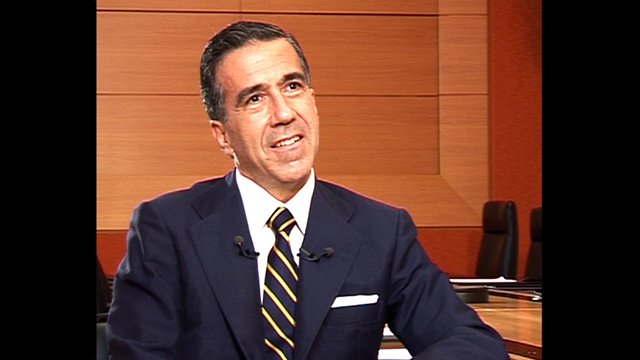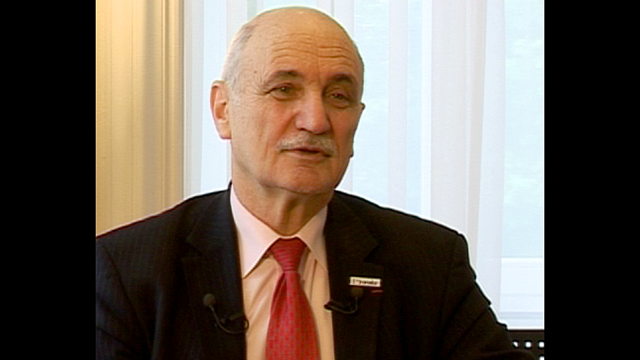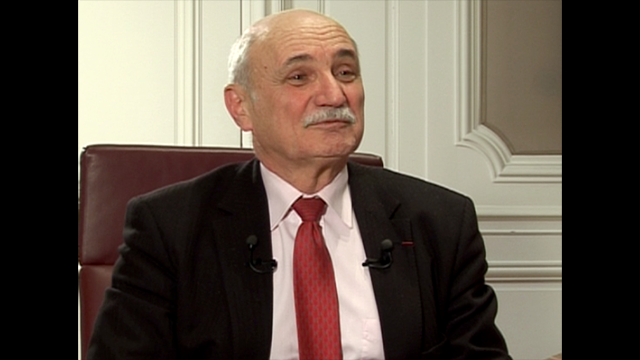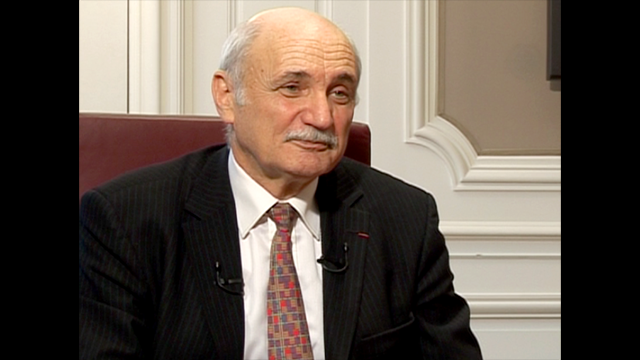EuroBusiness Media (EBM) : Arcelor, Europe's largest and one of the world's leading steel companies, just reported first quarter earnings for 2005. Guy Dollé, welcome. You are the CEO of Arcelor. What are your comments on your company's performance in the first quarter?
Guy Dollé (GD) : The first quarter results are excellent. These are the best results since the creation of Arcelor: €1 billion more EBITDA than one year ago. And just 25% of this improvement is due to a perimeter effect -- Argentina and Brazil -- which means that the rest is due to the positive effect on prices, despite a decrease of volume. We have been obligated to decrease our shipments to control inventories, but we have more or less compensated this decrease of volume by the management savings we have been able to achieve during this first quarter.
EBM : In your press release, you are announcing divestments in Spain. What are your comments?
GD : It is clear that we want to be more and more exposed to other countries than Europe. That means that we can take advantage, when there is no prospect of growth in some products, when we have some proposals to divest them. We took advantage of this.
EBM : Where do we stand on the destocking effect today, and what is the foreseeable impact on volume and prices in the second half of the year?
GD : We can say that during the year 2004, there was more apparent consumption than final consumption. That means a build-up of inventories, 3% on average, 6% perhaps for flat carbon steel. I do believe that for long carbon steel, the level of inventory is close to normal now. For flat carbon steel, the decrease of inventory just started in February. We have to decrease approximately 3 million tons compared to the level at the end of 2004, and it will take three or four months to be achieved. I do believe that the level of the inventory for flat will be close to normal either by the end of July or the beginning of September.
EBM : What about the effect of raw material price increases, and the impact on margins in the second half of the year?
GD : I have already announced that the effect of a raw material price increase for flat carbon steel will be close to €45 for Q4 2005, compared to Q4 2004. Out of which 12 has already been achieved in Q1. We do believe that around 15 to 17 will be achieved in the second quarter, and that means that we will still have something close to 13 to 15 in the second half of the year. So that means that it will of course decrease our margin, but experience shows that we have been able to achieve a huge price increase in the first quarter, and on average our selling prices for the second quarter will be very close to the first quarter. A little bit lower for spot prices, and a little bit higher for contracts. So that means an average for flat. So now June will be close, very close to the first quarter margin, of course with some effect on the volume decrease.
EBM : Could you give us a progress report on the privatization of Erdemir in Turkey?
GD: We are waiting for the tender, which is supposed to be released in the upcoming weeks. I just want to stress that Turkey is very important for us. It is a very attractive country, with great opportunity for growth. As you know, we have been active in Turkey since the late 1980s through Borcelik, which is a cold rolling mill and hot deep galvanized, and we have a lot of customers we already deliver from Borcelik, as well as from Europe. I believe that we are the best partner for the Turkish economy, bringing them a very important order book.
EBM : How are your plans to list your Brazilian assets coming along?
GD : You know that we cannot announce anything before the end of the CST Shareholder Agreement, which will be terminated at the end of May. We do believe that we will be in a position to announce our project before the end of June -- I think by the second half of June.
EBM : China has gone from being a net importer of steel to being a net exporter globally. Investors are still confused about what this means for the global balance in your industry. Could you shed some light on this new question in the market ?
GD: We have to analyze product by product. We know that China will become a net exporter of stainless steel next year. It is not yet the case, but it will put pressure on the European stainless steel market. For long now, we have known that since last year China is still self-sufficient, and even a net exporter, and it will last for the next coming years, noting of course that it is a local product, which means that China is exporting just in the rest of Asia. For flat carbon steel, China is still a net importer, and will still be a net importer until 2007-2008 at least.
EBM : What is your outlook and guidance for this year and next ?
GD: The first half of this year will be very good. You know that in this business it is difficult to predict what will happen in two or three quarters. There is no scenario, in my opinion, where prices will collapse in the second half of the year. So that means that this year, 2005, will be a very good year for Arcelor. As I have already mentioned, it will be at the least a better year than the year 2004.
EBM : From the point of view of an investor looking at all steel stocks worldwide, what makes Arcelor different from the rest of the peer group ?
GD: I believe that Arcelor is a more balanced company than some of its peers. We are balanced between spot prices and contract prices, which means that of course when margins are a little bit decreasing, we take advantage of the constant level of the margin on multi-year and yearly contracts first. Secondly, we are able to deliver, year after year, at least between 1.5 and 2% of the turnover in management savings, taking advantage also of course of our synergies. And we are considered to be the best company for top quality steel. I think these are the three main advantages of Arcelor.
EBM : Guy Dollé, CEO of Arcelor, thank you very much.
GD : Thank you.

